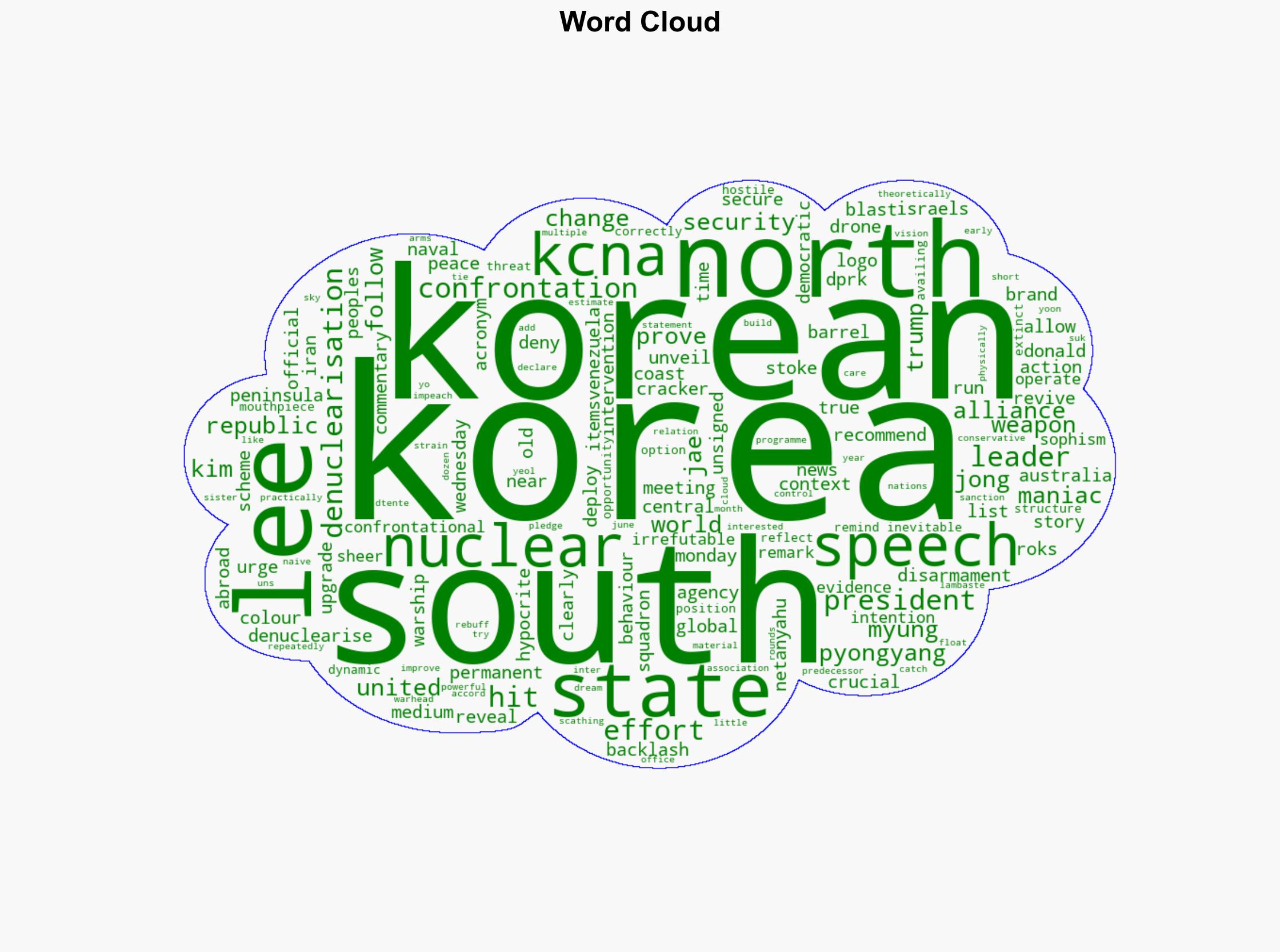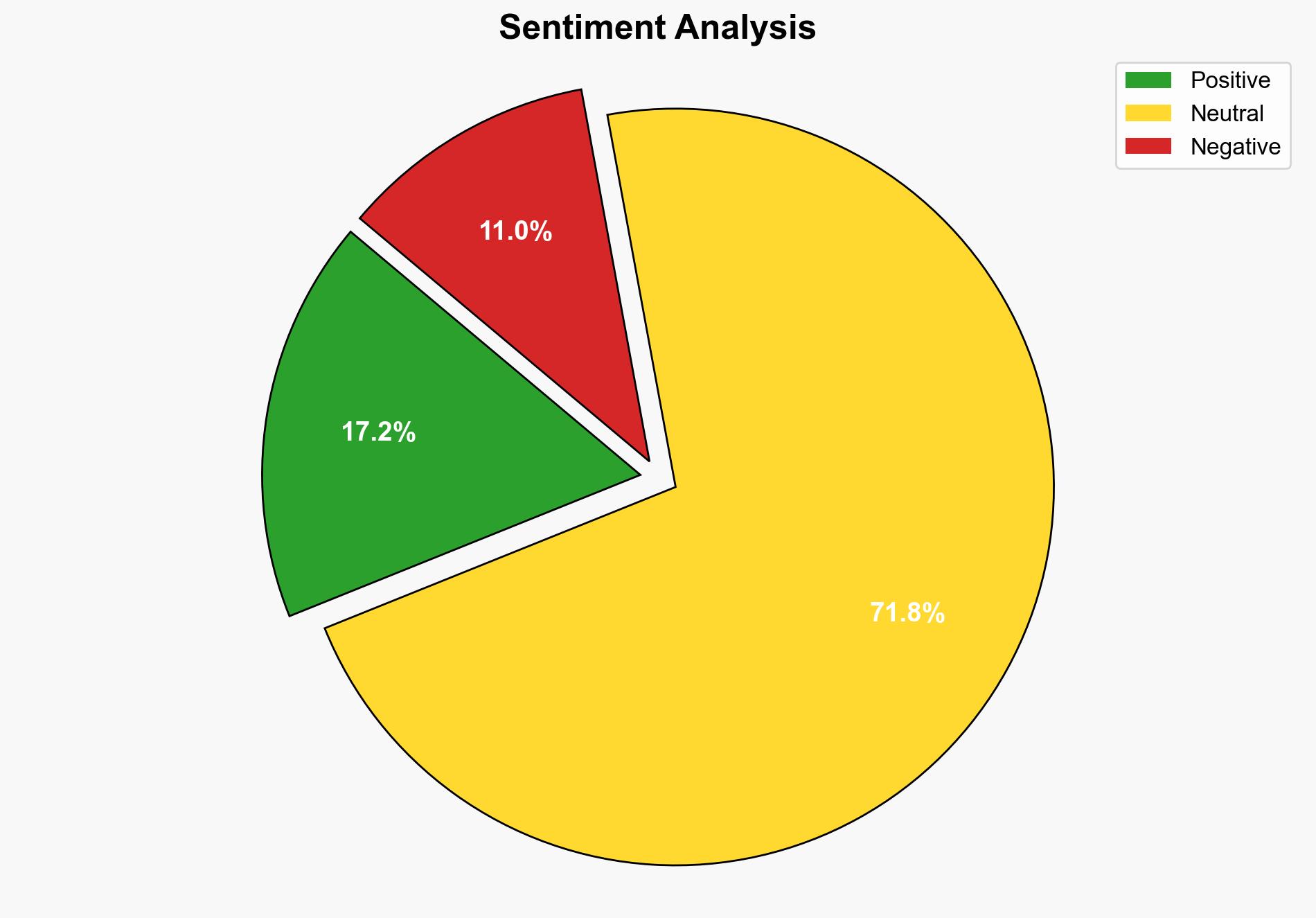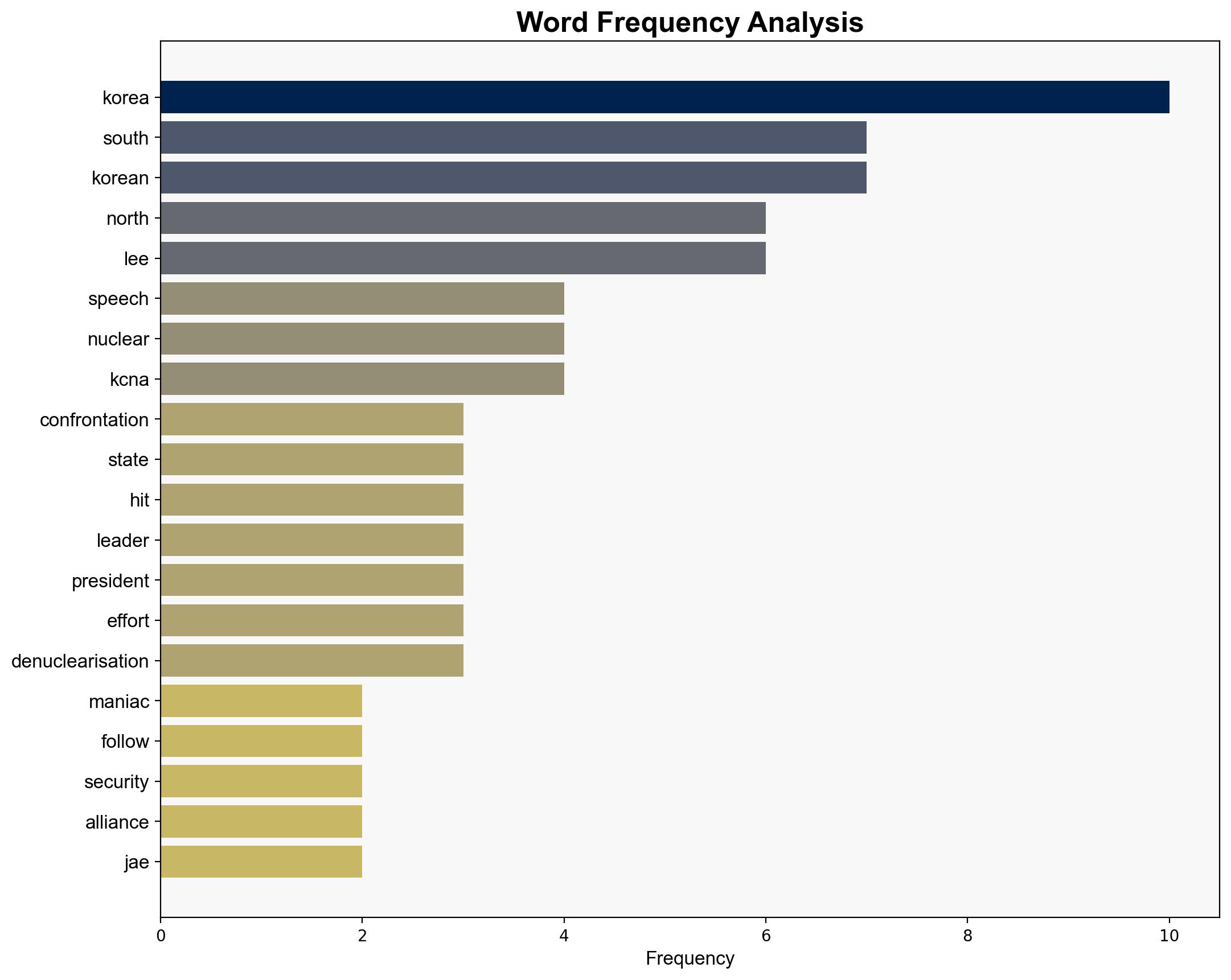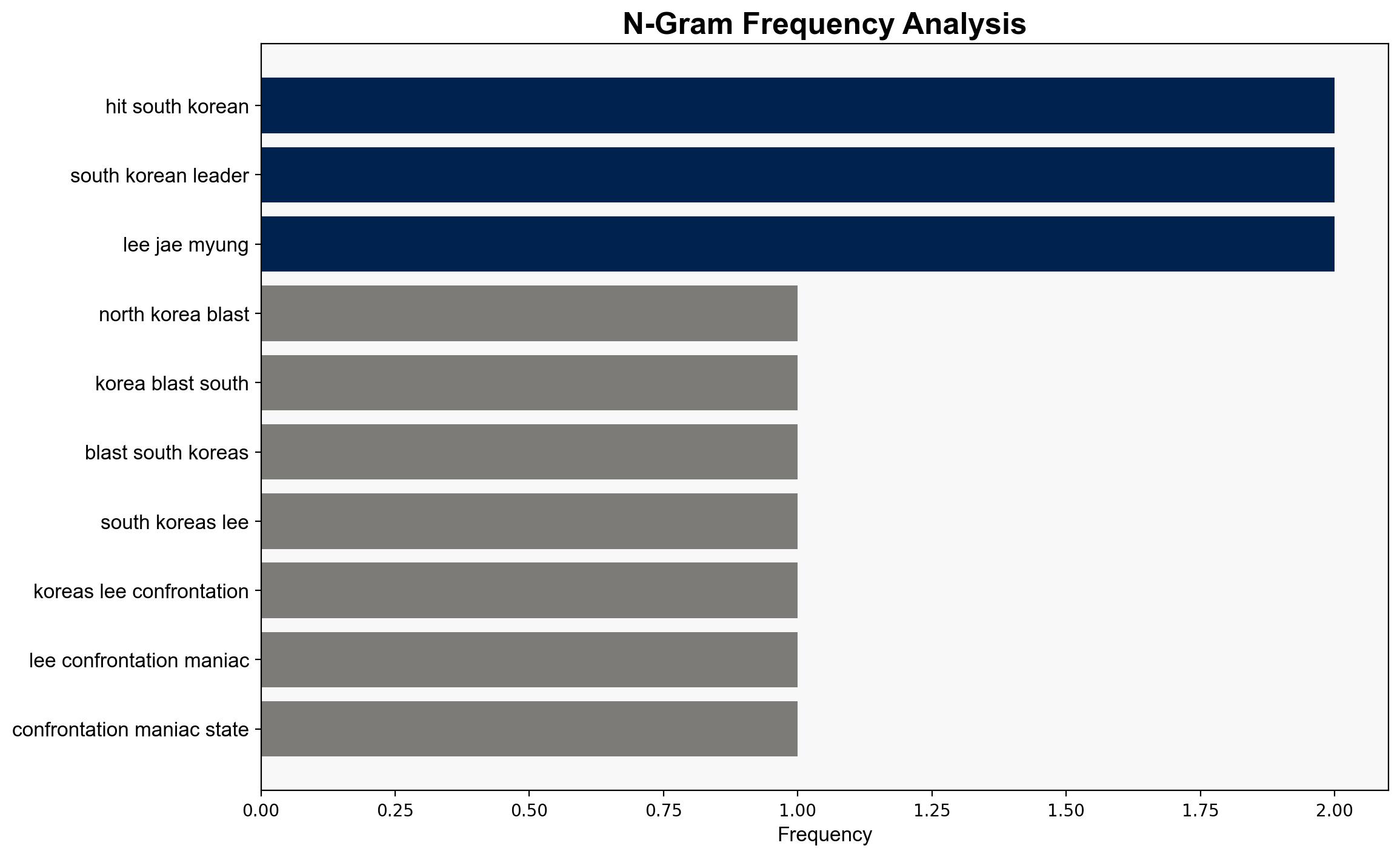North Korea blasts South Koreas Lee as confrontation maniac – Al Jazeera English
Published on: 2025-08-27
Intelligence Report: North Korea blasts South Koreas Lee as confrontation maniac – Al Jazeera English
1. BLUF (Bottom Line Up Front)
North Korea’s denunciation of South Korea’s President Lee Jae-myung as a “confrontation maniac” indicates heightened tensions on the Korean Peninsula. The most supported hypothesis suggests North Korea is using aggressive rhetoric to deter South Korea’s alliance strengthening with the United States. Confidence level: Moderate. Recommended action: Increase diplomatic engagement with regional stakeholders to de-escalate tensions and monitor North Korea’s military activities closely.
2. Competing Hypotheses
Hypothesis 1: North Korea’s rhetoric is a strategic move to deter South Korea from strengthening its alliance with the United States and pursuing denuclearization efforts. This aligns with North Korea’s historical pattern of using aggressive language to influence diplomatic dynamics.
Hypothesis 2: The rhetoric is primarily for domestic consumption, aimed at consolidating internal power by portraying external threats, thus justifying the regime’s nuclear stance and military investments.
Using ACH 2.0, Hypothesis 1 is better supported due to the timing of the rhetoric following South Korea’s diplomatic engagements with the United States, suggesting a direct response to perceived threats to North Korea’s strategic interests.
3. Key Assumptions and Red Flags
Assumptions include the belief that North Korea’s rhetoric directly correlates with its strategic intentions. A red flag is the lack of direct evidence linking North Korea’s statements to specific military actions, which could indicate a bluff or misdirection. Potential cognitive bias includes confirmation bias in interpreting North Korea’s actions as purely aggressive without considering internal factors.
4. Implications and Strategic Risks
The rhetoric increases the risk of miscalculation and escalation on the Korean Peninsula. It may lead to increased military readiness by South Korea and its allies, potentially provoking further North Korean responses. Geopolitically, this could strain regional alliances and impact global security dynamics.
5. Recommendations and Outlook
- Enhance intelligence-sharing with allies to monitor North Korea’s military activities.
- Engage in backchannel communications with North Korea to reduce misunderstandings.
- Scenario-based projections:
- Best Case: Diplomatic engagement leads to reduced tensions and resumption of dialogue.
- Worst Case: Miscommunication leads to military skirmishes, escalating into broader conflict.
- Most Likely: Continued rhetorical exchanges without significant military escalation.
6. Key Individuals and Entities
Lee Jae-myung, Kim Jong-un, Kim Yo-jong
7. Thematic Tags
national security threats, regional focus, geopolitical tensions, diplomatic engagement




